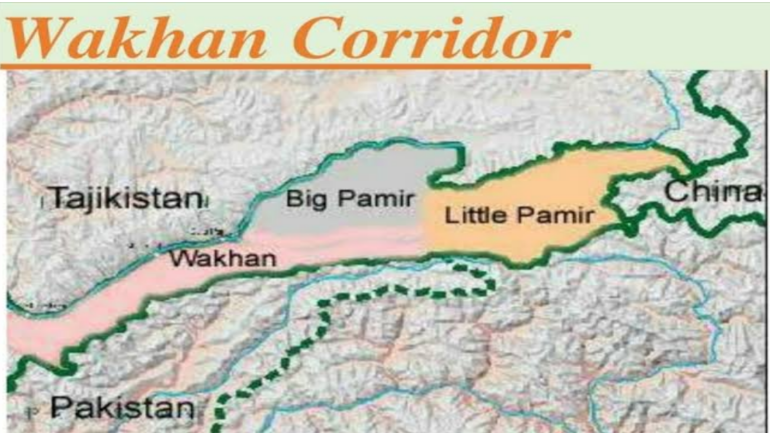The Wakhan Corridor, located in Afghanistan's Badakhshan province, stretches approximately 350 kilometers in length and 20 to 60 kilometers in width. This narrow strip of land holds immense geopolitical significance as it connects Afghanistan to China and separates Pakistan from Central Asia.
Though geographically small, the Wakhan Corridor's strategic location has turned it into a focal point of international politics, involving not just regional players like Pakistan and Afghanistan but also global powers like China and the United States.
Recent global events, including the U.S. withdrawal from Afghanistan, the Russia-Ukraine war, the Palestine-Israel conflict, and the ongoing turmoil in Syria, are interlinked parts of a broader geopolitical game. The Wakhan Corridor has now emerged as a critical piece of this puzzle. China's significant investments in Iran's Chabahar port and its Belt and Road Initiative (BRI) efforts to connect Central Asia via Moscow and Afghanistan have added new layers of complexity to the region.
China’s growing ties with the Taliban after the regime change in Afghanistan have further heightened the strategic importance of Wakhan. For Pakistan, this corridor is now a matter of survival, as it holds the key to unlocking trade and energy connectivity with Central Asia while addressing the challenges posed by strained relations with Afghanistan and security concerns in its own provinces.
The Wakhan Corridor is crucial for Pakistan for several reasons. It offers a direct trade route to Central Asia, bypassing the complexities of using Afghanistan's territory. Currently, strained Pakistan-Afghanistan relations and instability in Khyber Pakhtunkhwa and Balochistan have hindered cross-border trade, forcing Pakistan to rely on routes through China. However, these routes are costly, time-consuming, and inefficient, especially for perishable goods like fruits.
Moreover, Pakistan’s energy needs, particularly its plans for a gas pipeline with Tajikistan, further underscore the importance of securing this corridor. Without access to Wakhan, Pakistan’s economic and strategic interests face significant limitations.
The importance of Wakhan is not lost on global powers. The United States has actively worked to control or disrupt corridors that bolster China or Russia’s influence, as evidenced by recent developments in the Black Sea, Zangezur Corridor and Iran. In this context, the Wakhan Corridor has become a key area of interest.
However, Pakistan’s involvement in Wakhan poses significant risks. Engaging in a direct conflict with the Afghan Taliban over control of the corridor could destabilize the region further, especially given the Taliban's strong influence in Khyber Pakhtunkhwa. The surge in attacks by the Tehreek-e-Taliban Pakistan (TTP) following Pakistan’s airstrikes in Afghanistan illustrates the potential fallout of such a conflict.
Another critical question is how Pakistan would utilize the corridor if it gained control. Aligning with China’s BRI could invite severe U.S. sanctions, which Pakistan’s fragile economy cannot withstand. Conversely, remaining in the U.S. camp would strain its ties with China, a crucial military and economic partner.
The significance of the Wakhan Corridor extends beyond Pakistan. It is poised to become a decisive factor in shaping strategic partnerships and rivalries in the region. As the world watches, the competing interests of the U.S., China, and Russia will converge in this small but pivotal stretch of land.
In December 2024, I predicted in a column that after Syria, a corridor in either Afghanistan or Armenia would become the next geopolitical flashpoint. Today, the sudden debates and speculations about Pakistan’s potential control of the Wakhan Corridor suggest that this prediction may be coming true.
The stakes are high, and the outcome will have far-reaching consequences for regional and global politics. Only time will tell which direction this geopolitical chessboard will tilt.


